Receive our newsletter
Your e-mail address is only used to send you our newsletter and information about the activities of Strasbourg Europe. You can always use the unsubscribe link included in the newsletter.
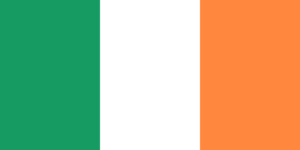
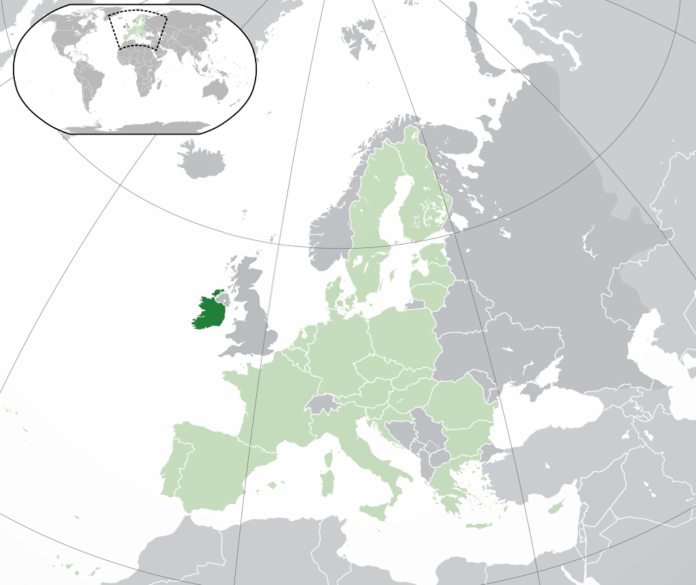
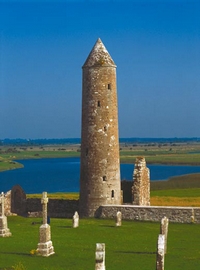 In 1800, the Act of Union brought together the kingdoms of Great Britain and Ireland. However, differences between the economic levels of Great Britain and Ireland became apparent during the 19th century. While Great Britain industrialized rapidly, Ireland lost much of its industry.
In 1800, the Act of Union brought together the kingdoms of Great Britain and Ireland. However, differences between the economic levels of Great Britain and Ireland became apparent during the 19th century. While Great Britain industrialized rapidly, Ireland lost much of its industry.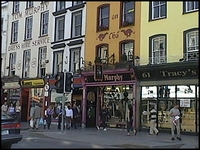
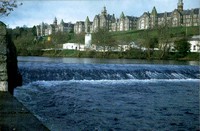
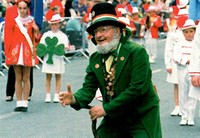
 Saint Patrick is the patron saint of the Irish. According to popular legend, Patrick settled in Ireland, where he became fervently religious. As a Bishop, he worked hard to bring Catholicism to his country. In his sermons, he used the image of a clover to explain the concept of the Holy Trinity: the Father, the Son and the Holy Spirit. Today, the clover is often used in celebration of Saint Patrick, but first and foremost it has become Ireland’s national symbol. The “leprechauns” are another symbol of Saint Patrick, with their name being taken from the Irish word “lechorpan” which means “little fellow” and refers to a sort of mysterious elf-like creature, with a red and white beard and hair, and pointed ears. Often dressed in green, and wearing a top hat, these mysterious little people are said to be shrewd and mischievous, bringing good fortune wherever they go. Saint Patrick’s Day is celebrated each year on March 17, the day of his death. To mark the occasion, the Irish organize street parades, eat, and drink plenty of beer and above all whisky!
Saint Patrick is the patron saint of the Irish. According to popular legend, Patrick settled in Ireland, where he became fervently religious. As a Bishop, he worked hard to bring Catholicism to his country. In his sermons, he used the image of a clover to explain the concept of the Holy Trinity: the Father, the Son and the Holy Spirit. Today, the clover is often used in celebration of Saint Patrick, but first and foremost it has become Ireland’s national symbol. The “leprechauns” are another symbol of Saint Patrick, with their name being taken from the Irish word “lechorpan” which means “little fellow” and refers to a sort of mysterious elf-like creature, with a red and white beard and hair, and pointed ears. Often dressed in green, and wearing a top hat, these mysterious little people are said to be shrewd and mischievous, bringing good fortune wherever they go. Saint Patrick’s Day is celebrated each year on March 17, the day of his death. To mark the occasion, the Irish organize street parades, eat, and drink plenty of beer and above all whisky!
© Irish Tourism
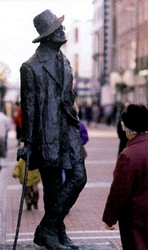 Born in Dublin in 1882, the great Irish writer James Joyce is today commemorated throughout Ireland. Beginning his studies in a Jesuit school before moving on to University College in Dublin, James Joyce studied languages and philosophy. In 1902, he travelled to France and later set up home with his wife in Trieste, Italy, where he taught English. In 1912 he undertook a short stay (his last) in Ireland, where he attempted to publish his first book, Dubliners. He finally succeeded in 1914. The following years proved to be somewhat more fruitful, with the publication of a play, Exiles, and a novel, Portrait of the Artist as a Young Man, which established his reputation. His fame continued to grow with Ulysses, published in 1922, and considered to be a particularly innovative work. A great traveller, James Joyce travelled throughout Germany, Switzerland and France, where he set up home in 1939 when he published Finnegan’s Wake, his last work published before his death.
Born in Dublin in 1882, the great Irish writer James Joyce is today commemorated throughout Ireland. Beginning his studies in a Jesuit school before moving on to University College in Dublin, James Joyce studied languages and philosophy. In 1902, he travelled to France and later set up home with his wife in Trieste, Italy, where he taught English. In 1912 he undertook a short stay (his last) in Ireland, where he attempted to publish his first book, Dubliners. He finally succeeded in 1914. The following years proved to be somewhat more fruitful, with the publication of a play, Exiles, and a novel, Portrait of the Artist as a Young Man, which established his reputation. His fame continued to grow with Ulysses, published in 1922, and considered to be a particularly innovative work. A great traveller, James Joyce travelled throughout Germany, Switzerland and France, where he set up home in 1939 when he published Finnegan’s Wake, his last work published before his death.

Your e-mail address is only used to send you our newsletter and information about the activities of Strasbourg Europe. You can always use the unsubscribe link included in the newsletter.
Information Center
on the European Institutions (CIIE)
Europe Direct Information Center
All rights reserved to the CIIE
Non-profit organization
Mailing address
1 allée Kastner
67000 Strasbourg
France
Visitors entrance
8 rue Boecklin
67000 Strasbourg
France
To provide the best experiences, we use technologies such as cookies to store and/or access device information. Consenting to these technologies will allow us to process data such as browsing behavior or unique IDs on this site. Failure to consent or withdrawing consent may adversely affect certain features and functions.
Europe Direct network
The CIIE team
Contact information and opening hours
Lieu d’Europe
The CIIE offices
Contact us
CIIE’s Documentation Centre & Publications
School presentations & Activities
Borrowing of learning material
Activities for the general public
Institutions of the European Union in Strasbourg
Institutions Under the Authority of the Council of Europe
Other European Organisations in Strasbourg
Sessions of the European institutions in Strasbourg
Visiting the institutions
Map of the European district of Strasbourg
Institutions in Strasbourg in photos
Discover artistic Europe
National holidays of the member states of the Council of Europe